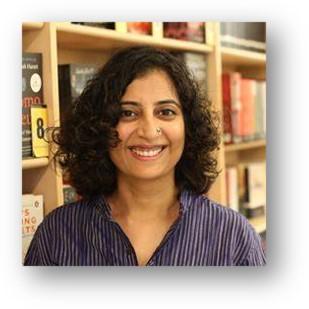Countless years of compounded medical apartheid injustices can greatly set back or negate modern medicine’s medical advancements if swift changes are not enacted to recognize and rectify the numerous inequities.
Vidya Krishnan is a multi award-winning independent journalist and was a 2020–2021 Neiman Fellow at Harvard. Join us on Thursday, October 19 as she presents an author talk titled Plagues, Philanthropies and the End of Imagination.
In this talk, Vidya will discuss medical apartheid and how it heavily affects black and brown communities across the globe.
We connected with Vidya ahead of her lecture to get more of her insights on dismantling medical apartheid.
Why is now the time to discuss the topic of dismantling medical apartheid?
This has been in the making for decades, if not centuries. This is not about particular point on a timeline, but a continuity of advocacy, from previous generations that have worked towards dismantling systemic racism in the bone marrow of global health structures. For centuries, medical achievements have been made as a direct result of injustice and degrading experimentation of black and brown bodies. Today, we are witnessing a new form of medical apartheid in which preventable and curable diseases, such as TB and COVID19, are thriving while lifesaving medicines remain in a stranglehold. Our world has to reconcile centuries of injustice and it can no longer be done by avoiding unpleasant conversations or by sweeping the history under the carpet.
The gains made in the twentieth century by medical science will be reversed in the twenty-first if we do not dismantle the system of medical apartheid. Now is the only time to do is because pandemics, conflicts, refugee and climate crisis — all of these things are worsening because of our refusal to acknowledge the underlying social causes and treating them solely as biomedical or technical problems.
How should universities change the way they teach or discuss medical apartheid in light of inequities rooted in racism and issues such as flawed philanthropy, politics, racism, and anti-science rhetoric? Have you changed the way you discuss medical apartheid in your writing and other professional work?
Tuberculosis is a great example of what happens to medicine when it leaves the lab setting and interacts with flawed human beings, who are racist or refuse to believe in science or use it for political agenda. Organized philanthropy further complicates the situation. Relying on charity to solve global health’s more urgent problems is like placing a Band-Aid on a malignant tumor and expecting the patient to recover. We get farther and farther from good-faith solutions like taxpayer funded, universal health coverage if we keep looking at short cuts like charity. Incrementally, we have centralized power and concentrated a vast amount of wealth in a few hands in oligopolistic industries like Big Pharma, Big Tech, and Big Philanthropy. We can no longer tinker with language or repurpose discredited cost-effective policies to sound like a health-care plan when none of it produces the experience of accessing health care safely and humanely.
Though it might appear otherwise, my writing is not about medicine or history or literature. I don't simply write about plagues and genocides. I write about human beings caught in a plague. Sometimes these are powerful people and other times these are unfortunate people with tragic stories. I try to center love in my stories. Everyone can love occasionally, even the wicked. It is the daily, mundane way of love that’s difficult - for writers as well as for the scientific community.
What articles or books would you suggest to students studying or working in the field of global health with interest in crafting solutions focused on medical apartheid?
I was deeply moved by Harriet Washington’s book Medical Apartheid and found it instructive while I was researching my book. I went back repeatedly to Albert Camus’ The Plague. However, these solutions cannot be found in a single book. I tend to read more than I am writing at any given point of time and it’s a good hack for students who are interested in hoarding information. I engage with the subject of medical apartheid from different tangents by reading philosophical books on suffering, historical accounts of plagues as well as latest medical literature and podcasts and documentaries. I am an information junkie and trill believe solutions emerge in that twilight zone where everything interacts with each other- medicine and sociology and history and politics.
Watch the recording of this lecture on our DGH YouTube channel.
